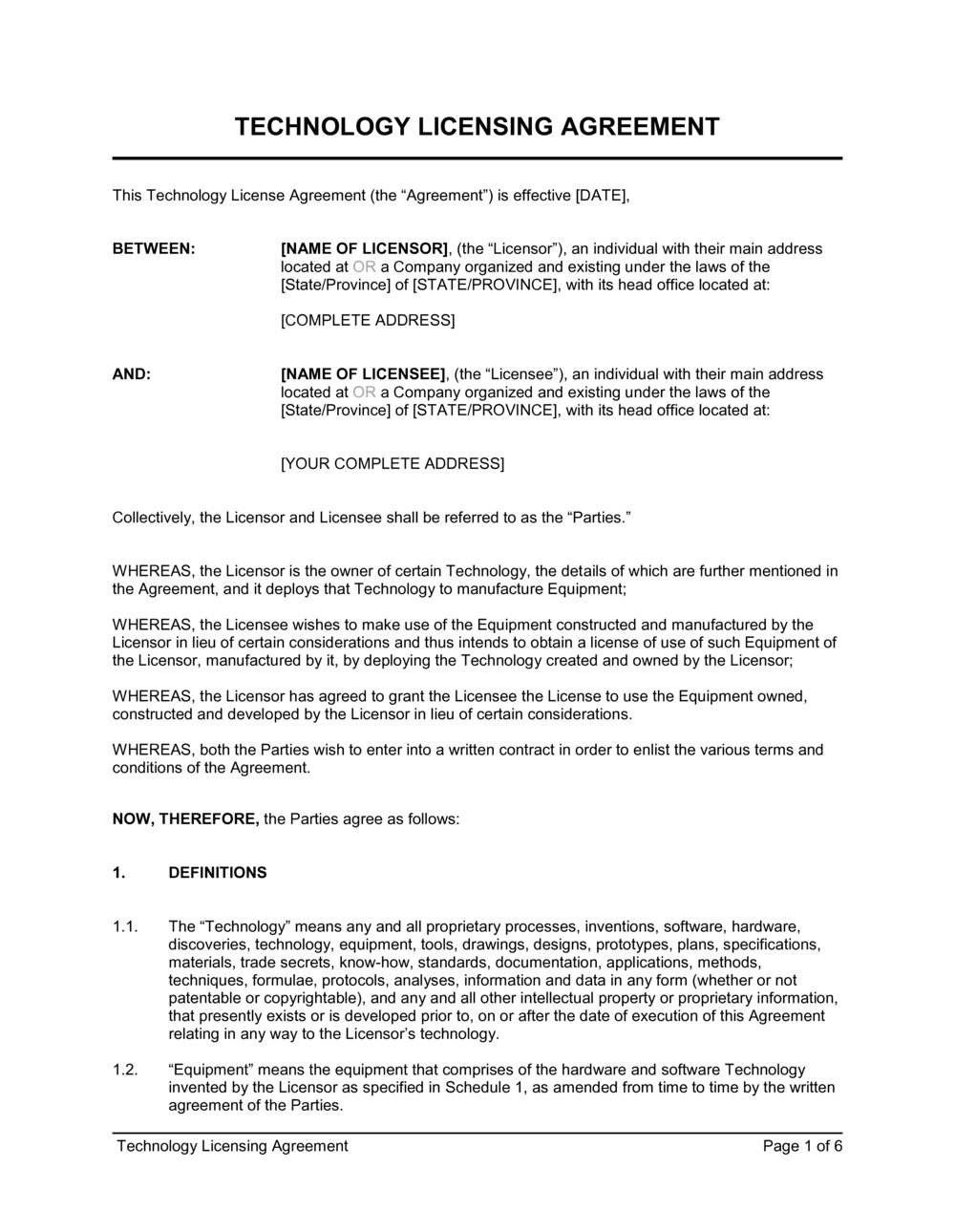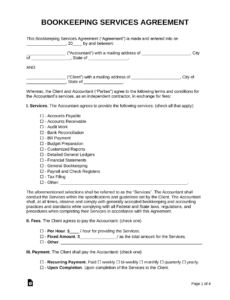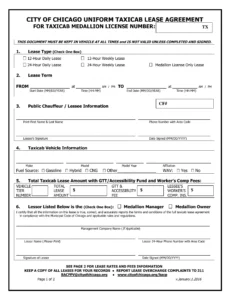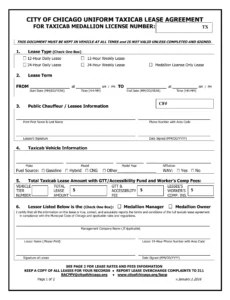Navigating the vibrant world of innovation, where ideas spark and technology evolves at breathtaking speed, often requires precise and professional documentation. Whether you’re an ambitious startup, a seasoned corporation, or an individual inventor, the need to formalize how your intellectual property is shared and utilized is paramount. This isn’t just about legal protection; it’s about setting clear expectations, fostering trust, and ensuring smooth collaboration in a complex landscape.
That’s where a robust technology licensing agreement template comes into play. It serves as your essential roadmap, outlining the terms under which one party grants another the right to use their proprietary technology. For licensors, it protects their valuable assets and defines revenue streams. For licensees, it grants access to cutting-edge tools and capabilities, all while establishing a foundation of clarity that can prevent future misunderstandings.
The Cornerstone of Smart Business: Professional Documentation
In any business endeavor, particularly those involving intellectual property, meticulous organization and professional documentation are not merely bureaucratic hurdles; they are strategic advantages. A well-crafted legal contract brings clarity to often intricate relationships, clearly defining roles, responsibilities, and boundaries. This clarity minimizes ambiguity, which is the root cause of many disputes and operational inefficiencies.

High-quality business documentation, like a comprehensive service agreement or a detailed memorandum of understanding, builds a strong foundation of trust among all parties involved. It communicates competence, attention to detail, and a commitment to fair dealings. Ultimately, consistent and professional record-keeping functions as a vital compliance record, ensuring adherence to legal requirements and industry standards.
Unlocking Efficiency: Benefits of Structured Templates
Imagine starting every single business communication or legal document from scratch. The time, effort, and potential for oversight would be immense. This is precisely why structured templates, forms, and agreement layouts are indispensable tools for productivity and organizational excellence. They act as pre-vetted frameworks, guiding you through the essential components of any formal arrangement.
Using a contract template offers immediate time savings, allowing you to focus on the unique specifics of your deal rather than the architectural design of the document itself. These forms ensure completeness by prompting you for all necessary clauses, from intellectual property rights to termination conditions. Furthermore, they foster consistency across all your agreements, reinforcing your professional image and streamlining your internal processes. A well-designed professional layout significantly reduces the chances of costly omissions or ambiguities, providing a solid, legally sound starting point for negotiations.
Beyond Technology: Adapting the Template for Diverse Needs
While the core focus of this discussion is on technology licensing, the underlying principles and structural elegance of a well-designed agreement template are remarkably versatile. The careful articulation of rights, responsibilities, terms, and conditions forms the backbone of countless professional interactions. This adaptability makes such a document an incredibly valuable asset in your business communication toolkit.
Consider how the logical flow and detailed clauses of the document can be repurposed. For instance, the section on scope of use could easily be adapted for a general business contract or a freelance service agreement, defining project deliverables instead of technology access. Similarly, principles of intellectual property protection can translate into confidentiality clauses within a business partnership agreement or even a nuanced memorandum of understanding. Even seemingly unrelated documents, like a rental agreement, share the fundamental need for clear definitions of property use, payment schedules, and dispute resolution, proving the universal utility of a structured approach to formalizing any deal.
When a technology licensing agreement template Shines Brightest
A thoughtfully constructed technology licensing agreement template is invaluable in situations where innovation meets commerce. It provides the necessary legal framework to protect your intellectual assets while allowing them to generate value through controlled usage by others. Here are some prime examples of when utilizing such a template is most effective:
- Software Licensing: When granting rights to use software applications, platforms (SaaS), or proprietary algorithms, defining scope, duration, and user limitations.
- Patent Licensing: Allowing another entity to manufacture, sell, or use an invention protected by a patent, specifying fields of use and geographical restrictions.
- Trademark Licensing: Authorizing third parties to use your brand name, logo, or other trademarks for merchandise, co-branding, or specific product lines.
- Data Licensing: Providing controlled access to proprietary datasets for research, analytics, or integration into other products, with clear stipulations on data handling and privacy.
- Know-How Transfer: Formalizing the sharing of specialized technical knowledge, trade secrets, or unpatented processes crucial for a licensee’s operations.
- Collaborative R&D Projects: When two or more entities are developing new technology together and need to outline ownership and exploitation rights of the resulting intellectual property.
- Mergers & Acquisitions: During due diligence or post-acquisition, ensuring proper transfer or continued licensing of existing technology assets within the acquired entity.
- University-Industry Partnerships: Facilitating the commercialization of academic research by licensing patented or patent-pending technologies to corporate partners.
Crafting Clarity: Design, Formatting, and Usability Tips
A contract, no matter how legally sound, is only as effective as its readability and usability. When designing and formatting your business file, prioritize clarity for both print and digital versions. Start with a clean, professional layout that uses ample whitespace and legible fonts (like Arial or Calibri at 10-12 points for body text). This enhances human readability and reduces cognitive load, ensuring that critical details are not overlooked.
Organize the record with logical headings and subheadings, perhaps using <h3> tags for specific clauses, to guide the reader through complex information. Employ bullet points and numbered lists for easier digestion of terms and conditions. For digital versions, consider creating fillable PDF forms or using document signing platforms that streamline the agreement process. Always include version control information (date, version number) to track changes, especially important during negotiations. Finally, make sure the template is accessible, using clear language and avoiding overly convoluted legal jargon where simpler terms suffice, making the document easy to navigate for all parties involved.
In conclusion, having a ready-to-use technology licensing agreement template is more than just a convenience; it’s an intelligent business strategy. It equips you with a powerful tool for streamlining your professional communication and ensuring every technological collaboration is built on a solid foundation. By leveraging such a pre-designed agreement, you save invaluable time and resources that would otherwise be spent crafting documents from scratch, allowing you to channel your energy into innovation and growth.
Ultimately, the practical value of a robust technology licensing agreement template lies in its ability to offer legal clarity, foster professional relationships, and provide peace of mind. It ensures that the exciting journey of technology development and deployment is underscored by unambiguous terms, protecting your interests and enabling prosperous partnerships. Embracing smart documentation is truly about embracing smarter business, leading to more productive outcomes and stronger, more resilient ventures.


